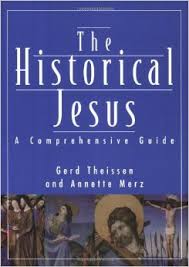 Time and again the study of Jesus has been swamped by waves of radical scepticism–to the point of denial of this historicity of Jesus. Three names may be mentioned as examples.
Time and again the study of Jesus has been swamped by waves of radical scepticism–to the point of denial of this historicity of Jesus. Three names may be mentioned as examples.
Bruno Bauer (1809-1882), who once lectured in theology at Bonn, regarded the earliest Gospel as a literary work of art: history is produced in it, not described. Albert Kalthoff (1850-1906) understood Jesus as a product of the religious needs of a social movement which had come into contact with the Jewish messianic expectation. Arthur Drews, who was professor of philosophy in Karlsruhe, declared Jesus to be the concretization of a myth which already existed before Christianity.
Here we find three motives for scepticism which are also operative where there is no dispute over the historicity of Jesus: Jesus is understood as a product of literary imagination, social needs or mythical traditions.
Here historical skepticism appears within or outside theology, often with a great ethical solemnity, and foists on its critics the ungrateful role of apologists driven by their wishes. This is quite wrong. In discussion of the historical Jesus nothing is free from wishes and interests, not even skepticism.
Outside theology skepticism wants to rob Christianity of its legitimization. Inside theology  it is employed for purposes of legitimization.
it is employed for purposes of legitimization.
For example, people say: since we only have sources about Jesus which are coloured by faith, an approach to Jesus governed by faith is the only legitimate one; the only alternative is unbelief.
Quiet historical work should rule out such pressure imposed by a single alternative–for the sake of the freedom to be able to come to terms critically with Jesus without having to legitimate one’s faith or unbelief by the results of scholarship.
The Historical Jesus: A Comprehensive Guide (Gerd Thiessen and Annette Merz, pp. 90-91; my formatting).
